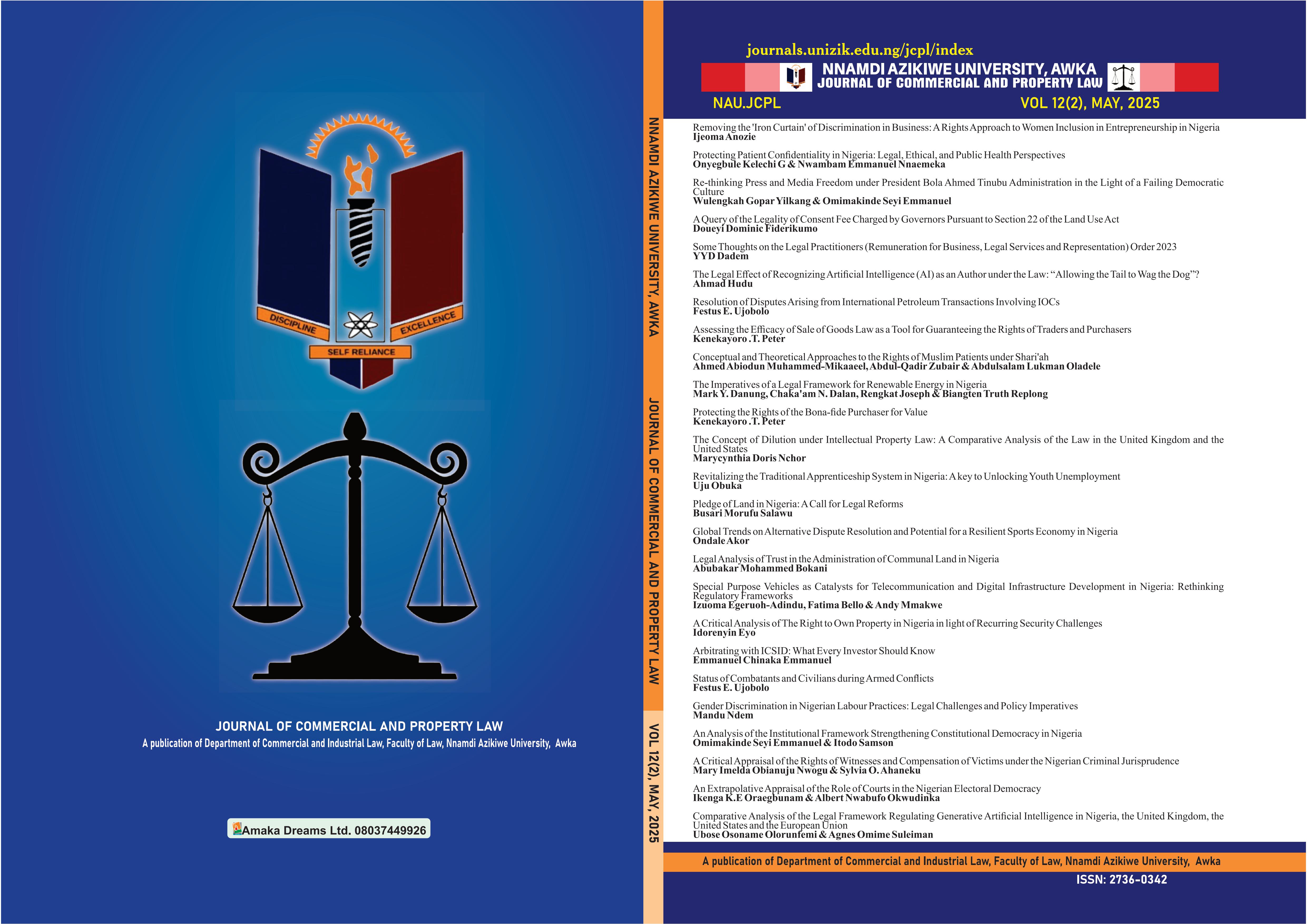GENDER DISCRIMINATION IN NIGERIAN LABOUR PRACTICES: LEGAL CHALLENGES AND POLICY IMPERATIVES
Keywords:
Gender discrimination, labour practices, employment equity, legal reform, workplace rightsAbstract
Gender discrimination remains a systematic challenge in Nigerian labour practices, impacting women’s professional mobility, financial equity, and psychological wellbeing. This paper explores some discriminatory labour practices that perpetuate gender inequality in workplaces, despite constitutional guarantees and international commitments. It highlights the different forms of gender discriminatory practices prevalent in Nigerian labour and finds that gender discrimination is rooted in our beliefs and cultural practices and has transcended into labour practices. This occurs in form of wage disparity, pregnancy discrimination, occupational segregation, bias hiring among others. Using doctrinal research methodology, the paper analyzes Nigeria’s legal framework, through primary sources including the Constitution of the Federal Republic of Nigeria, 1999 and Labour Act 2004, and evaluates judicial interpretations of gender-based claims. Secondary materials were also utilised, such as, textbooks, journals, articles and internet sources. The paper identifies key legal challenges such as gaps in statutory provisions and lack of enforcement mechanisms and proposes concrete policy imperatives, including legislative reform and the creation of a National Gender discrimination Commission. Lessons are drawn from Kenya and USA to guide Nigeria’s reform trajectory.

